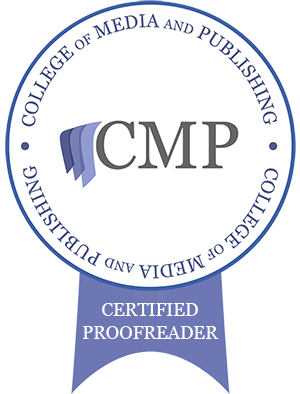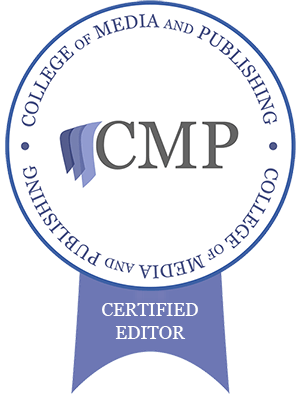
There’s always someone telling you how you should write, that you must follow these steps and this routine to succeed as a writer. Then you find other people who tell you that these rules are utter nonsense. It can be difficult to know who to believe. As with any creative pursuit, writing has lots of myths and accepted truths that might not be quite so set in stone. So let’s discuss seven writing myths.
1. Write What You Know
This is a common one. The idea that you should only write about what you know about. The problem is, it’s difficult to interpret what this actually means. Most people assume it means you can only write about your own lived experience. So there is something to this, but at the same time, depending on your genre, writing only what you have experienced can limit you significantly.
A big part of writing, especially fiction, involves using imagination and creativity. If you want to write something that isn’t just an autobiography or a fictionalised version of your life, you need to think outside your own life experiences. You can use your own experiences and knowledge to embellish your writing and make it feel more real. But, if you want to include something you have no real world experience of, does this mean you can’t write about it?
Well, it depends. If you plan to include something you don’t know much about, the key to making it authentic is research. Learn all you can about the topic. Learn from people who have lived that experience. Be prepared to accept feedback and change things accordingly. For example, it can be difficult for someone who has never experienced depression, to write it authentically in a character. Not impossible, but you might find you have to really face up to your own misconceptions about what it’s like to experience depression. The same can apply to disabilities, gender identities, different sexual orientations and to race and ethnicity of real world people. Caution is advised, and thorough research will help you write this in a sensitive manner.
2. Reading Makes you a Better Writer
To a degree, this is true. If you’ve never been a big reader, writing can be difficult. Reading lets you explore new ideas and worlds, learning different styles and writing techniques and understanding the genres you’re interested in. However, writing is a skill and it can only be truly improved by practice.
Reading a lot won’t make you a better writer if you are not practicing the writing side of things. Analysis of what you read can help you identify techniques and skills that you can use as a writer, but you’ll only learn how to use them if you practice. Some people will say you should avoid reading too much, or you’ll end up copying other authors and stealing their style. This is also debatable. If you are writing for yourself, you will establish your own style, while perhaps taking influence from writers you like.
3. Write Every Day
A lot of writing advice is centered around this idea that you should write every single day no matter what. I disagree with this to some degree. I do believe having a good regular writing routine is a great idea, but like anything else, breaks are important. Just like going to the gym every single day and doing a full 2 hour workout is probably going to become counterproductive, writing is the same way. Forcing it too much will lead you to burn out.
It also depends on your life. A lot of writers, especially those just starting out, are probably doing it around a full time job, family life, studies or any other commitments. It makes much more sense to set aside time in your schedule you can dedicate to writing. If it’s one evening a week, great! If you can fit in an hour or two every day and that works for you, great! It needs to be sustainable
4. Writer’s Block
There’s a lot of opinions here. People will say ‘Writer’s block isn’t real, it’s just laziness’. Others will be keen to give you a list of different things you can do to overcome writer’s block. Basically it is a situation which many writers and creatives face, where they are struggling to produce any work. They can’t come up with ideas, you can’t write anything you’re happy with or you have no motivation.
It can be so difficult, when nothing seems to be working and you have no motivation or interest in your work. Personally, I do believe writer’s block is very real, I have experienced it myself. I find the key is figuring out why you’ve hit this stumbling block in your writing. Are you getting a bit burnt-out? Do you need to take a break? Are you just struggling to figure out what comes next?
Knowing what has caused it may help you find a way to overcome it. If you need a break, take a break. You could try looking at another project. Go and do something else and leave it for a few days. Maybe watch a new TV show or read a new book. You might just get an idea when you least expect it. If you are struggling with the next plot point, take some time to review what you’ve written so far. You don’t need to go ahead and do a full edit, but re-reading it might help you pick up on the plot threads again and figure out what you want to do next.
5. Your Idea Should Be Perfect Before You Start
To me, this is flat out wrong. If you wait until you have a perfect idea and a perfect plan, you’ll never get started. Perfection can come later, that’s what reviewing and editing is for. You have the idea, you’ve written a rough plan from the initial idea and after that, you should start writing. Things might change as you write, you might come up with new ideas and plot points as you go. That’s okay. This is why you write drafts and go back and edit later.
Very few pieces of media are published in their initial form. Movies and TV are edited extensively, a huge amount of footage filmed is removed. Music is the same, and writing is the same too. Some people advise against editing as you go, and recommend finishing the entire first draft before you go back and edit. Others prefer to edit a bit as they work. Either way, don’t be afraid to write everything that comes to mind.
6. You Must Write in a Certain Order
Some people will insist you should write your book from start to finish in that order. Even going so far as to insist you follow an established story structure format. Others will advocate for writing the ending first before filling in the rest. Is this really okay? I think it depends on you and how your brain works. As a rule, I tend to write from start to finish, but there have been times where I’ve had an idea for a specific scene that takes place later in the story than where I’m at.
I think if your inspiration is leading you to a later part of the book, it’s okay to write it and figure out exactly where it fits in later. My current WIP came about from an old writing experiment I did years ago where I basically tried to write a description of a journey. I read over it, and an idea came to me, and before I knew it, I had four chapters written. And it went from there.
7. Planning Stifles Creativity
The old ‘pantser’ vs ‘plotter’ debate. Pantsers are people who fly be the seat of their pants, i.e they get in their flow and write without having a plan in place. Plotters are the opposite, preferring to have an outline in place before they start writing. And plenty of writers fall somewhere in between. People who are pantsers will often claim that having a plan stifles their creativity and slows them down. Plotters will often argue that having a plan reduces the risk of writer’s block.
So who is right? Again, it depends. I do think it’s a good idea to have an idea of the overall plotline of your work before you start writing, at least having the ending in mind. You’re probably noticing a theme here, that these ‘rules’ are not as hard and fast as some people like to insist they are. There is something to most of them, but everyone works differently and I think these rules can be interpreted and applied to your work the way that works best for you. Or as they often say in Pirates of the Caribbean: “They’re more like guidelines, anyway.”
So that’s a view on some of these common writing myths. I’d love to hear any thoughts or experiences of what we’ve discussed today, so feel free to chat about it in the comments. For more, stay tuned. We’ll be staying in this vein for the rest of the week. I post every Monday, Wednesday and Friday. Subscribe below to get an email whenever a new blog post is live.
For more on writing advice, I have other posts including cliches and editing as you go. For more on writer’s block, this blog post on Reedsy has a lot of good information.




Leave a Reply